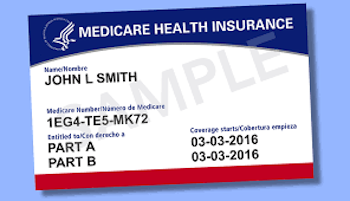
Written by Jack Cheevers
The U.S. Centers for Medicare & Medicaid Services (CMS) is mailing new Medicare cards to protect the safety and security of people with Medicare benefits. The new Medicare cards no longer contain a person’s Social Security number, but rather a unique, randomly-assigned Medicare number that protects the identities of people with Medicare, reduces fraud, and offers better safeguards of important health and financial information.
“Removing Social Security numbers from Medicare cards is one of the many ways CMS is committed to putting patients first and improving the consumer healthcare experience,” said Greg Dill, CMS regional administrator for California. “This change not only protects Medicare patients from fraud, but also safeguards taxpayer dollars by making it harder for criminals to use Social Security numbers to falsely bill Medicare for care services and benefits that were never performed.”
Work on this important initiative was made possible by the enactment of the Medicare Access and CHIP Reauthorization Act of 2015.
CMS began mailing the new Medicare cards to people who currently have Medicare benefits in California today. Additionally, Californians who are new to Medicare started to receive their new Medicare cards in April along with others across the country when the mailing first began. As soon as people receive their new Medicare card, they should safely and securely destroy their old Medicare card and keep their new Medicare number confidential. Our current mailing strategy allows us to complete the mailings of new cards to all people with Medicare, both new and current enrollees, over the next year.
The new Medicare card will not change any of the program benefits and services that eligible people enrolled in Medicare receive. People with Medicare and their caregivers can visit medicare.gov/newcard to find out when new Medicare cards will be mailed to their area. They can also sign up for email notifications about the new card mailing and check the status in their state.
Health care providers, suppliers, and people with Medicare will be able to use secure look-up tools that allow quick access to the new Medicare numbers when needed. There will be a 21-month transition period for healthcare providers and suppliers to use either the former Social Security-based Medicare number or the new Medicare number to ensure a seamless transition.
As the new Medicare cards are being mailed, people with Medicare should look out for scams and follow these tips:
— Medicare will never contact you for your Medicare number or other personal information so you can obtain your new Medicare card.
— Don’t pay for your new Medicare card. It’s free. If anyone calls or approaches you and says you need to pay for it, that’s a scam.
— Guard your card. When you get your new card, safeguard it like you would health insurance or credit cards.
— Only give your new Medicare number to doctors, pharmacists, other health care providers, your insurers, or people you trust to work with Medicare on your behalf.
Jack Cheevers is the communications director for Region 9 of the U.S. Centers for Medicare & Medicaid Services, the federal agency responsible for administering Medicare, Medicaid, State Children’s Health Insurance (SCHIP), Health Insurance Portability and Accountability Act (HIPAA), Clinical Laboratory Improvement Amendments (CLIA), and several other health-related programs.






